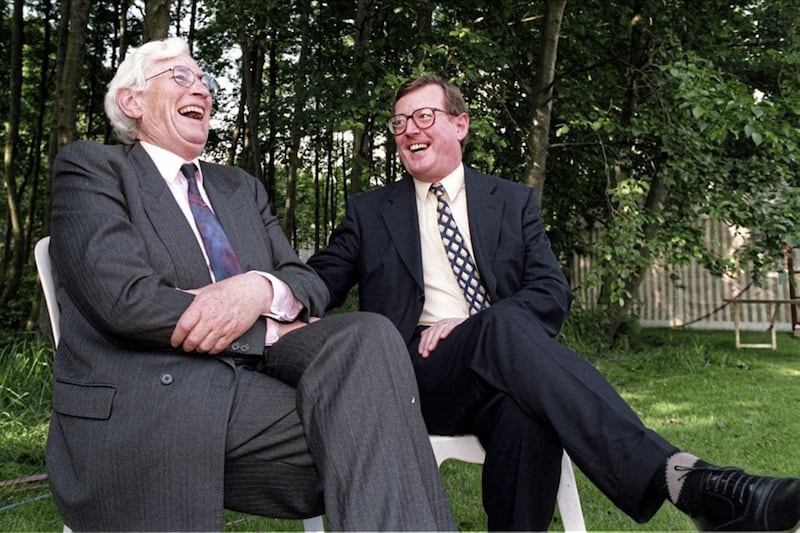A snapshot assessment of Northern Ireland politician’s personalities, habits and attitudes was compiled ahead of Labour’s Westminster general election win in 1997.
The briefing mostly focuses on unionist politicians and does not include any Sinn Fein representatives, according to State documents released this year to the Irish National Archives.
Among the descriptions prepared in a document called First Day Briefing Material written by the UK government’s Northern Ireland Office was a description of UUP leader David Trimble’s “quick and disciplined mind” and hints of the tense relationship between the SDLP leadership of John Hume and Seamus Mallon.

Mr Trimble is described as “articulate, business-like and intelligent” in the document, but “an instinctive hard-liner” who has “formidable political and presentational talents”.
It stated that although he showed “political and personal courage” at the start of the talks, Mr Trimble has “not been able to provide strong and coherent leadership”.
Although he has a “quick and disciplined mind”, and is a “formidable TV debater and polemicist”, he can be “arrogant and abrasive”.

Following on from a note in the document that states there is no “obvious contender for his crown”, Mr Trimble’s deputy leader at the time, John Taylor, is described as “not well-liked”.
“A complex figure, found by many to be arrogant and blustering and always seeming to be conscious of the fact that his unrivalled experience (and undoubted intelligence) gave him a special place in the party hierarchy.”
Mr Taylor, now Lord Kilclooney, told the Irish News: “The NI Office is often out of touch with politics in NI.”
The one time leading Ulster Unionist said he was one of three negotiators particularly involved in dealing with north, south, issues.
Lord Kilclooney added: “I still have a poor opinion of the NI Office and its present SoS (Secretary of State). The NIO denied that there is now a border down the Irish Sea between GB and NI. How could one admire such an opinion?”
Another senior UUP figure, Ken Maginnis, is “large, friendly, open and garrulous”.
The briefing said that Mr Maginnis was also “in many ways the most attractive (in personal terms) of the UUP upper echelon”.
“Something of a loose cannon in party terms, he has a reputation for speaking first and thinking later. A rambling and unfocussed speaker.”

SDLP leader Mr Hume is described as “a complex character, capable of dark moods and depression when he feels things are not going right”.
“He is often worried about his health.”
His deputy, Mr Mallon, is described as “very charming”, but “vigilant in spotting lapses of behaviour by the security forces and rigorous in his criticism of aspects of security policy which he considers counter-productive”.
It added: “But he is a fair critic and does not go out of his way to be unnecessarily difficult.”
The document also states that Mr Mallon’s relations with Hume “are not always the best”.
The material can be viewed in the National Archives in file 2022/45/425









